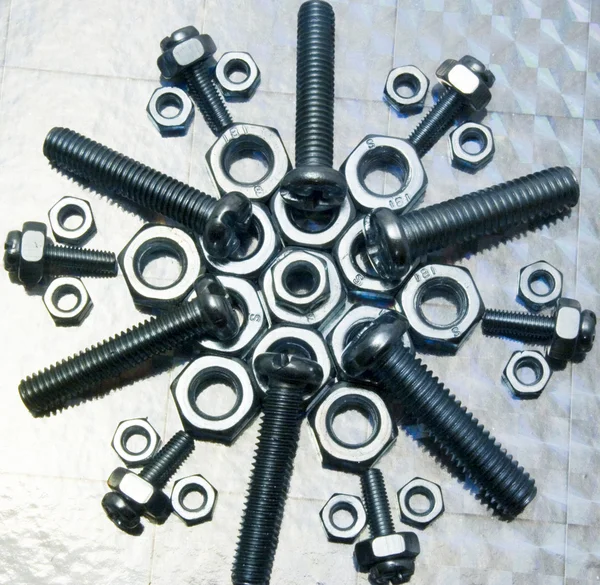A Evolution of Nuts and Bolts: The Chronicle
Within the world of construction, manufacturing, and DIY projects, nuts and bolts play a vital role as crucial components. Such seemingly basic components are foundational to the assembly of numerous structures and machines. Understanding the evolution of fasteners and bolts not only highlights their importance in contemporary technology but additionally reveals the intricate designs and advancements that have appeared over the years. From their earliest iterations to today's diverse array of specialty components, the journey of nuts and screws is a captivating testament of human ingenuity and practicality.
As we delve further into this subject, we will examine the various types of fasteners and bolts, their unique applications, and important factors to consider when selecting the appropriate fastener for your task. Whether you're a experienced professional or a DIY enthusiast, having a comprehensive understanding of various components can create a significant impact in the outcome and durability of your work. Join along as we navigate through the details of nuts, screws, and the related components, providing you with the insights needed to take informed choices for your next endeavor.
Types of Nuts and Bolts
Nuts and bolts are vital components used in various uses, each designed to serve particular functions. The most widely used type of bolt is the hex bolt, noted for its hex head, which makes it easier to tighten and loosen with a tool. Another frequently used choice is the carriage fastener, having a rounded head and a square neck that stops the fastener from turning once installed. Lag screws, also known as lag screws, are specifically made for heavy-duty applications, providing a durable hold in timber and other materials.
Fasteners also come in multiple styles, all tailored for particular uses. Standard hex nuts are commonly utilized and compatible with various types of bolts, while locking nuts are designed to resist loosening due to vibration. Flange nuts, featuring a integrated washer, distribute the load over a larger area and minimize the risk of damage to the surface. Understanding hop over to these guys helps in selecting the right connector for a project, ensuring a secure and long-lasting connection.
For specialized needs, special fasteners are available, such as nylon locking nuts that offer an added layer of safety by preventing the movement of threads. Additionally, security fasteners, like anti-tamper nuts and bolts, are crucial in applications where access by unauthorized individuals is a risk. By learning with the different kinds of nuts and bolts, you can make informed choices that enhance the effectiveness of your building or fixing tasks.
Materials and Coatings
The materials used in fasteners and screws play a critical role in establishing their durability, durability, and suitability for different uses. Steel is the predominant material due to its significant pull strength and adaptability. It’s often used in structural and vehicle applications. For environments subjected to moisture or harmful elements, corrosion-resistant steel is favored for its resistance to oxidation and corrosion, making it perfect for external projects. Copper alloy and titanium are also used, with copper alloy being suitable in electrical connections due to its conductivity, while titanium offers a superior strength-to-weight ratio, making it popular in aviation and high-performance contexts.
Coatings are of equal importance as they enhance the efficacy and longevity of nuts and bolts. Zinc coating, for instance, provides a barrier against corrosion and is typically found on bolts used in environments where moisture is present. Zinc-coated fasteners, which undergo a enhanced coating process, offer greater corrosion resistance, making them ideal for robust outdoor applications. Additionally, powder coating can provide both aesthetic appeal and functional protection against wear and corrosion.
Selecting the right material and coating is vital for optimizing the efficacy of fasteners. Considerations such as the working environment, load specifications, and chemical exposure must be taken into account. For instance, choosing corrosion-resistant coatings like PTFE or nylon can greatly increase lifespan in harsh conditions, while selecting a designated material can ensure the nuts and bolts can handle the required pressure and weight loads in their designated applications.
Unique Fasteners

Unique fasteners play a crucial role in multiple applications where standard nuts and bolts may not suffice. For example, tamper-proof fasteners are engineered to prevent unauthorized access or removal, making them ideal for security-sensitive installations. These unique nuts and bolts frequently require specialized tools for installation and removal, adding an additional layer of security in environments where safety is a top consideration.
Another notable category is anchor bolts, which are crucial in construction for securing structures to concrete foundations. They provide stability and strength, especially in heavy-duty projects. When picking anchor bolts, it is necessary to consider factors such as the type of load they will bear and the environment in which they will be used, making sure that they provide the required support for long-lasting performance.
In addition to security and construction applications, there are also distinct fasteners like nylon lock nuts. These nuts feature a nylon insert that locks the nut in place, preventing it from loosening due to vibration or movement. Their unique characteristics make them suitable for various machinery and automotive repairs where ensuring tight connections is essential for operational safety and efficiency.